When on May 12, 1191 Richard the Lionheart and Berengaria of Navarre were married in Limasol (Cyprus) after the English king had subdued the entire island, no expense was spared for the wedding banquet, within the possibilities of the moment. .
It is not known what food or dishes were served for the occasion, but the wine made a pleasant impression on the attendees, so much so that Ricardo referred to it as wine of kings and the king of wines . It was not for less, because that wine had been produced in the area for at least 1900 years.
Moreover, it is still being produced today and is therefore considered the oldest wine in the world produced continuously (since 800 BC) and under the same name (since the Middle Ages). It's called Commandaria .
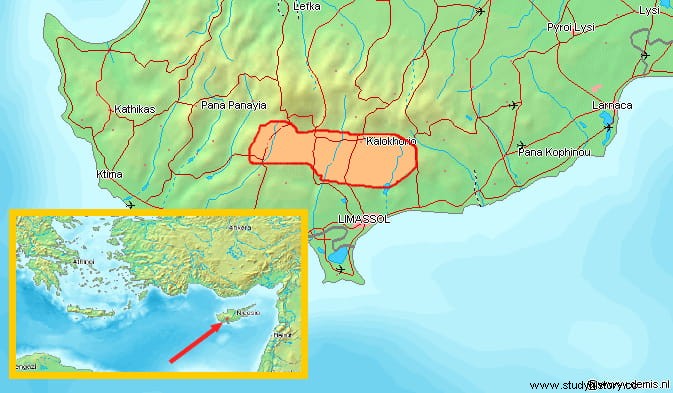
It is a sweet, amber-coloured wine made in the Commandaria region, at the foot of the Troodos mountains in Cyprus. It is made from sun-dried grapes of the Xynisteri and Mavro varieties, following the same method as in ancient times:the overripe grapes are exposed to the sun to increase the density of the sugar before the wine is aged in oak barrels for at least three years.
The region and the wine take their name from the Templars, who temporarily settled on the island at the end of the 12th century, and whose stronghold at Kolossi was called La Grande Commanderie .
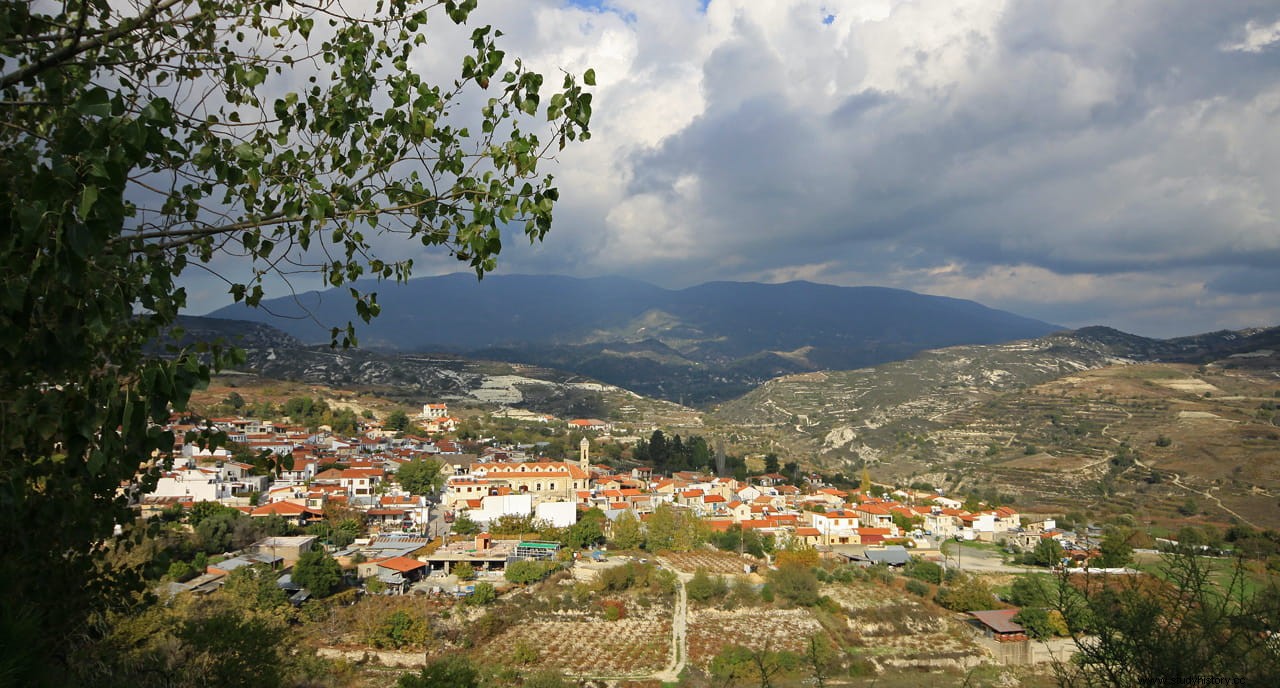
But before that, the poet Hesiod already mentions a wine made from dried grapes, and Euripides described it as the Cypriot manna .
The Commandaria wine achieved so much fame during the Middle Ages than when the King of France Philip Augustus organized the first international wine competition in 1224, Cypriot wine won the first prize. The poet Henri d’Andéli tells the story of him in his poem The Battle of the Wines .
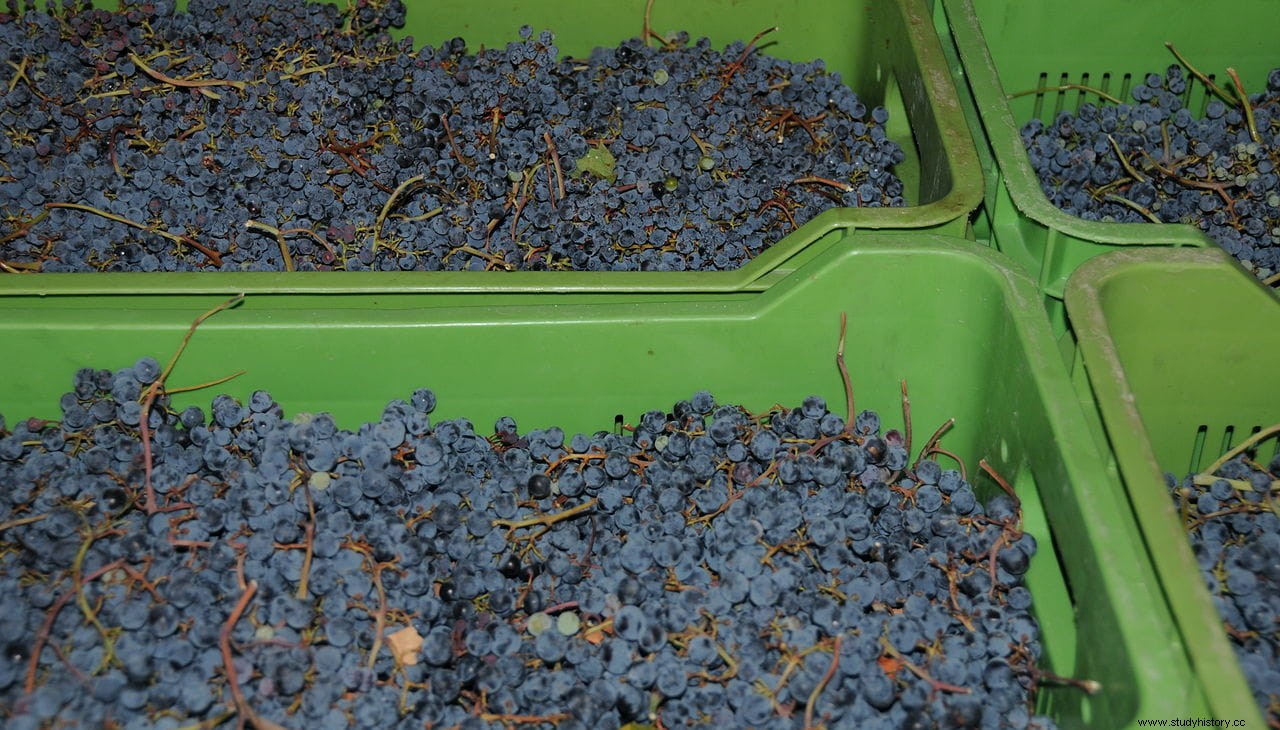
It relates how some 70 wines from all over Europe and the Mediterranean were judged by an English priest, who tasted them and classified them as celebrated if they pleased him, or excommunicated if you didn't like them.
At the end a Cypriot sweet wine (almost certainly the Commandaria ) was victorious and received the title of Apostle of the wines.
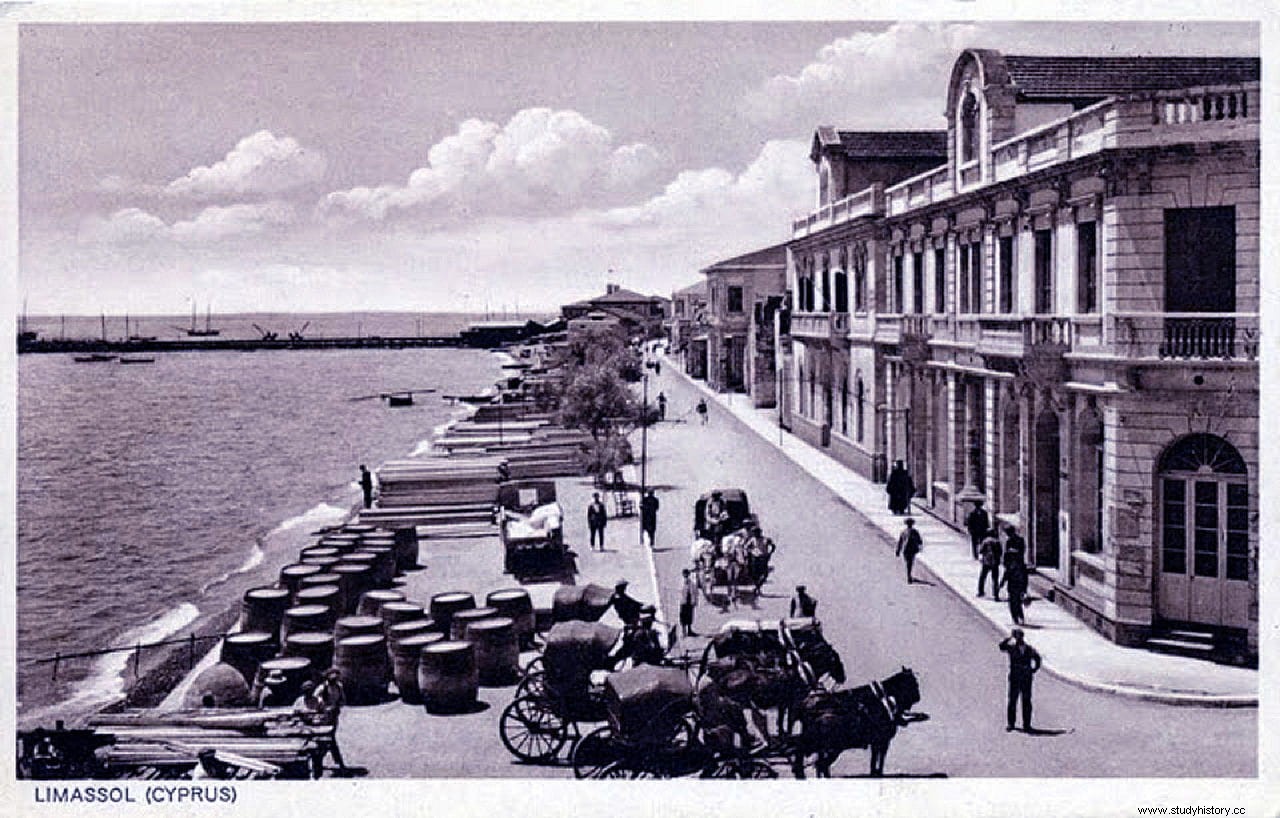
At the famous Banquet of the Five Kings, which took place in London in 1363 organized by the Worshipful Company of Vintners (a kind of publican association, which is still active), and which brought together Valdemar IV of Denmark, Peter I of Cyprus, David II of Scotland, John II of France and Edward III of England, Commandaria It was the wine chosen to entertain the monarchs.
During the Ottoman occupation of Cyprus, production declined, mainly due to the high taxes imposed by the new rulers.
However, the Commandaria It continued to be present on the best tables in Europe, and when it was not possible to get it in France, they devised a recipe that imitated it.
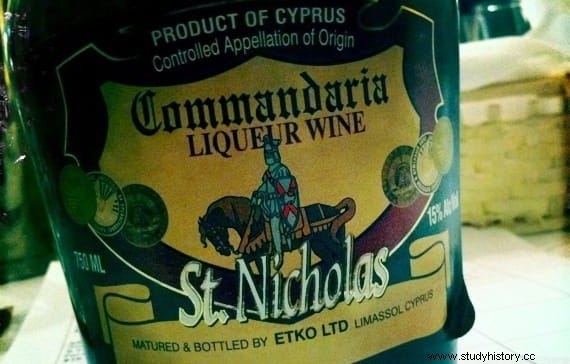
A legend says that the origin of the famous vineyards of the Marne region in France, where champagne is produced, is in Commandaria vine cuttings. that a Cypriot couple gave to Count Thibault de Champagne for having saved their lives on the occasion of his visit to the island. And another assures that the Portuguese also took cuttings in the fourteenth century, which they later planted on the island of Madeira to give rise to their prized vineyards.
It is not by chance that Shakespeare placed the action of his Othello in Cyprus, and that Verdi's opera based on the English bard's work begins with a storm, a fight and drinking in a tavern (Roderigo, Beviam! ).
Today the wine Commandaria It is produced under a Protected Designation of Origin in 14 towns in the Commandaria Region, in the district of Limassol.
